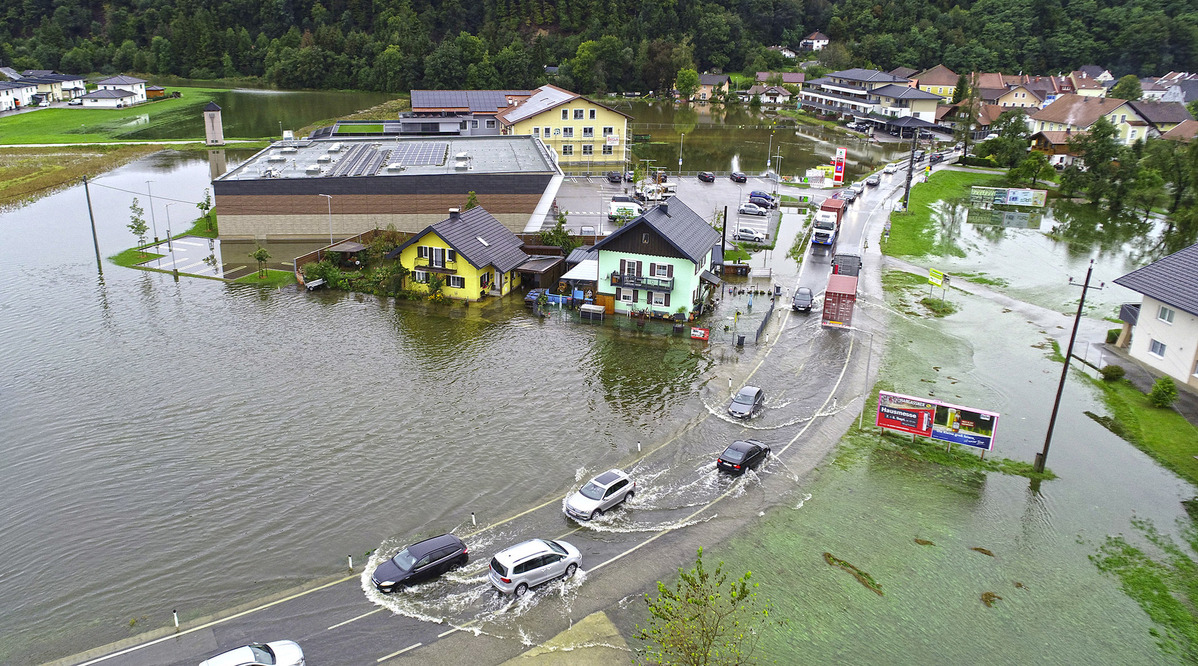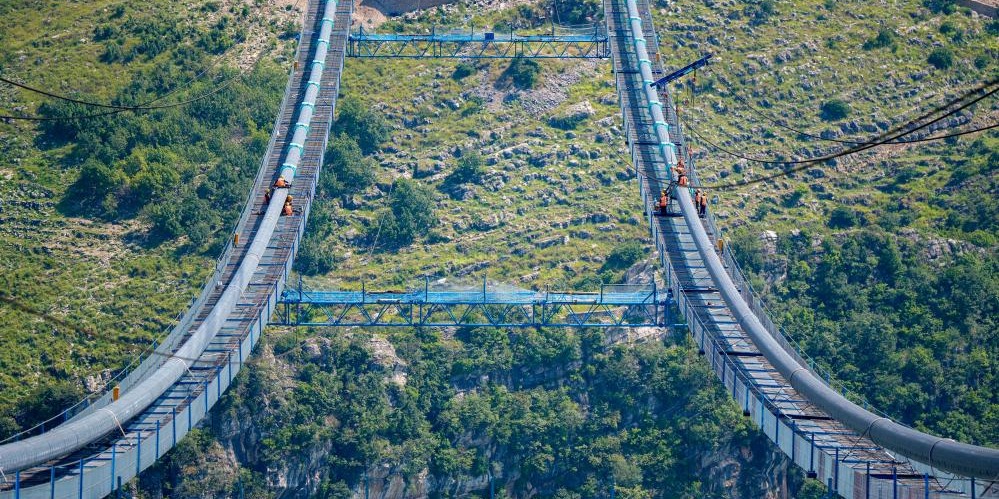
Large swathes of Central Europe continue to brace against floods, the worst in at least two decades, prompting officials to warn that such extreme weather events could become the norm due to climate change.
Heavy flooding this week has affected Austria, the Czech Republic, Hungary, Poland, Romania, and Slovakia, with at least 21 fatalities reported across the countries as of Wednesday.
While some areas have seen waters recede, others prepared for river overflows, as the floods moved through different zones, forcing residents and authorities to respond to rapidly changing conditions.
Torrential rains brought by Storm Boris on the weekend have destroyed infrastructure, submerged vehicles, and caused billions of euros in damages.
Areas along the Czech Republic-Poland border have suffered the worst damage, reported Reuters, as debris-filled rivers destroyed historic towns, bridges, and houses, leaving tens of thousands without power or fresh water.
Cities including Wroclaw, Poland's third-largest and situated on the Oder River, and Budapest, the Hungarian capital on the Danube River, were braced for flooding from rising water levels.
The European Union's executive branch issued a stark warning on Wednesday, citing the catastrophic floods across Central Europe and lethal wildfires in Portugal as combined evidence of climate collapse, predicting such events will become commonplace without immediate and decisive action.
"Make no mistake. This tragedy is not an anomaly. This is fast becoming the norm for our shared future," said EU Crisis Management Commissioner Janez Lenarcic.
Storm Boris brought record rainfall in areas including Lower Austria on the weekend, when cold northern air met moisture from the Mediterranean Sea, which had reached unprecedented summer temperatures.
Rampant wildfires in northern Portugal during the last week have killed at least seven people. More than 5,000 firefighters have been deployed to combat the blazes that Portugal's Prime Minister Luis Montenegro described as "raging across the country".
Researchers say fossil fuel emissions have exacerbated global heatwaves, making them longer, more frequent, and more intense, which in turn raises the likelihood of wildfires.
"Europe is the fastest-warming continent globally and is particularly vulnerable to extreme weather events like the one we are discussing today. We could not return to a safer past," Lenarcic told EU lawmakers in Strasbourg, France.
Countries are also struggling with escalating financial costs of both emergency repairs and the process of post-disaster recovery, said Lenarcic.
"The average cost of disasters in the 1980s was 8 billion euros ($8.9 billion) per year. More recently, in 2021 and in 2022, the damage is surpassed 50 billion euros per year, meaning the cost of inaction is far greater than the cost of action," he said.
According to Terry Reintke, who leads the Greens group in the European Parliament, the financial burden on the EU resulting from these climate events has been calculated at approximately 650 billion euros since the 1980s.
"Our success will depend on how determined we are to combat climate change together in order to reduce emissions," Reintke said.

Man jailed for smuggling 'ecological killer' turtles

Beijing Culture Forum: Powerful Testament

Australian Munroe claims victory in Zhangjiajie wingsuit championship

China sees net increase in farmland for three consecutive years

World's first geographic multimodal premiered in China

Huajiang grand canyon bridge under construction in Guizhou